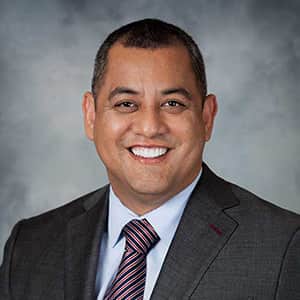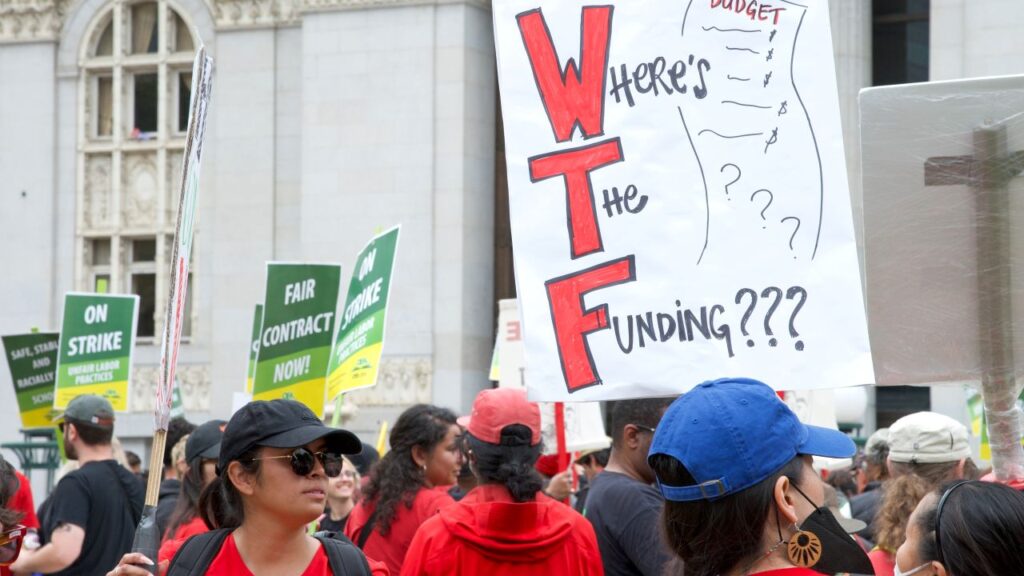Share
The Fresno City Council is scheduled to finalize the Responsible Neighborhood Market Act on Thursday. It’s an effort to reduce the number of beer, wine and liquor merchants.
But a growing number of business and community leaders are coming forward to urge the council to delay the vote.
Many believe it’s a worthy cause to try to cut down on the number of establishments selling beer, wine and liquor in Fresno. However, several say the act, as currently written, will reward bad actors in the community by making their licenses more valuable while leaving small, neighborhood grocery store owners unable to afford them.

“We feel it needs more clarity and attention to ensure that healthy food grocery stores, so badly needed in our cities food desert neighborhoods, are not inadvertently discouraged and/or unintentionally prohibited.”–Keith Bergthold, executive director of Fresno Metro Ministry
Letter from Keith Bergthold
Keith Bergthold previously served as assistant director of the Fresno’s planning and development department. He is currently the executive director of Fresno Metro Ministry, a faith-based organization that works to create a more respectful, compassionate and inclusive community that promotes social and economic justice.
In a letter to the city council, Bergthold said a delay is needed to ensure desirable grocery stores would not be negatively affected.
“We respectfully request a brief delay on taking action on the proposed ordinance in order to address potential unintended consequences,” writes Bergthold. “We feel it needs more clarity and attention to ensure that healthy food grocery stores, so badly needed in our cities food desert neighborhoods, are not inadvertently discouraged and/or unintentionally prohibited.”
Bergthold’s organization is involved in healthy food education and access projects that address food insecurity in Fresno. One of his current projects, in conjunction with the Craig School of Business at Fresno State, is to assess the market demand and operational feasibility of community-serving grocery stores that would increase healthy food access to underserved areas of the city.
Letter from John Shehadey
“We are in the middle of a pandemic that is already challenging the small business model, and to impose further burdens on good operators planning a store remodel or expansion will do severe damage.”–John Shehadey, family owns Producers Dairy
John Shehadey, whose family owns Producers Dairy, also wrote a letter about the act. GV Wire℠ obtained a copy.
“I don’t believe we should draft this ordinance solely with the rule breakers in mind. Many new, clean, well lit food markets sell alcohol as part of a business model that requires many profit centers to survive,” writes Shehadey, in part. “We are in the middle of a pandemic that is already challenging the small business model, and to impose further burdens on good operators planning a store remodel or expansion will do severe damage.”
He’s mostly concerned about the proposed restrictions placed on the issuance of new licenses and their costly effects on small convenience markets.
Shehadey says there are stores in the community that do not observe recommended practices in the industry. “Any market not abiding by current health standards, sign ordinances, or legal business practices should be cited and eventually removed by laws that are currently in place – some of which I had helped created decades ago,” writes Shehadey.
Shehadey is asking for a 90 day delay so more residents and members from the business community can provide more input and possibly improve the ordinance.

“The waiving of those development fees would offset the cost of what they’ll spend on an alcohol license.”–Fresno City Council president Miguel Arias
Council President Miguel Arias’ Position
Arias says the city has a policy in place for businesses wanting to open in impoverished areas of town that waives all development impact fees.
So, if a small ‘mom and pop’ type of grocery store wanted to open in southwest Fresno for example, “The waiving of those development fees would offset the cost of what they’ll spend on an alcohol license,” says Arias.
Arias also believes by limiting the amount of alcohol licenses in the city it will drive up the value of all existing licenses. He believes that will entice some of the establishments that are causing many problems will be incentivized to sell their license to someone else that will do a better job.
Additionally, Arias believes the annual inspection program that would be included in the new plan moving forward would find many violations at some locations that could add up to thousands and thousands of dollars. He believes the business owners not abiding by community standards would eventually decide to close and sell their license.
Elbow Room Owner
Elbow Room owner Mike Shirinian tells GV Wire℠ by phone he applauds Arias’ efforts to eradicate bad store owners in the city, but doesn’t believe the act in its current form will work.
“The current proposal will drastically increase the value of existing licenses,” says Shirinian. “It will reward the bad operators and make it impossible for a small operator to start.”
Land use consultant Nick Yovino, Jr. has been following the city’s actions closely. He wrote a letter of his own to council where he writes in part, “While I support the intent of the ordinance, I believe more time is needed to first develop more specific guidelines for its implementation.”
“They’re estimating the price of a liquor license now will range from $150,000 and up to get the license if you have the transfer and surrender policy in place,” explains Yovino to GV Wire℠ by Zoom. He says a business of 10,000 square feet or less would have to buy two licenses (retiring one of them) which would cost $300,000.
Shirinian says the math just doesn’t add up. “Requiring a two for one purchase will make the costs go out of sight. This is a simple supply and demand issue.”
According to Arias’ council assistant Laura Garcia, one recent example is ‘Valley Food’, a grocery store that opened in downtown Fresno about a month ago. It opened in an impoverished area so the city fees were reduced by 50%. Owner Mansoor Mohamed took over an existing building so he paid a zone clearance of $27, sign permits at a cost of $318, and $6,721 to sell alcohol. That’s a total of $7,066. In other words, he saved roughly $7,000 in city fees — though, under the new rules, a similar owner would still have to purchase an alcohol license for an estimated $150,000.
RELATED TOPICS:
Categories




















